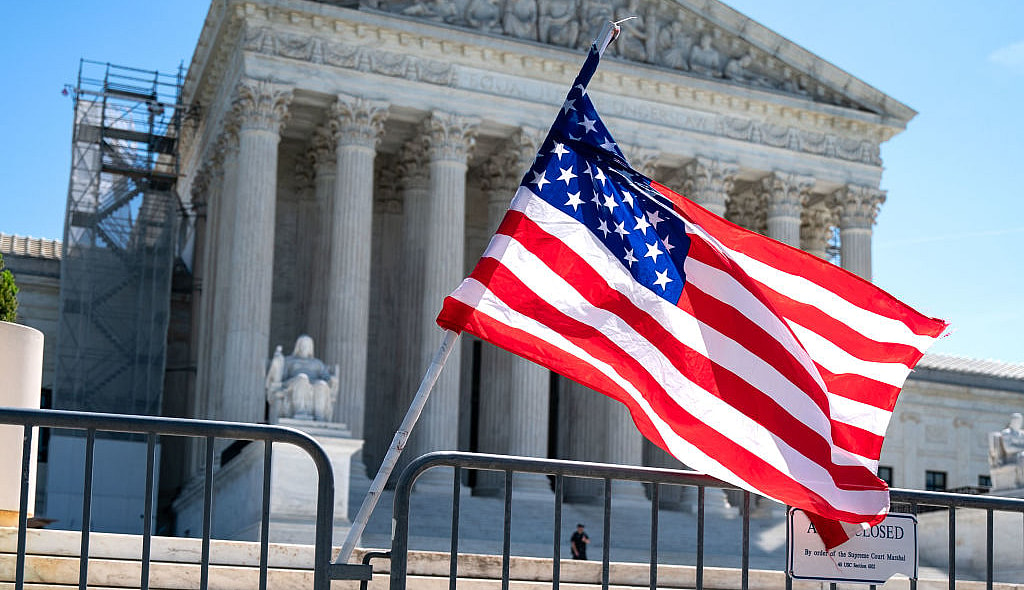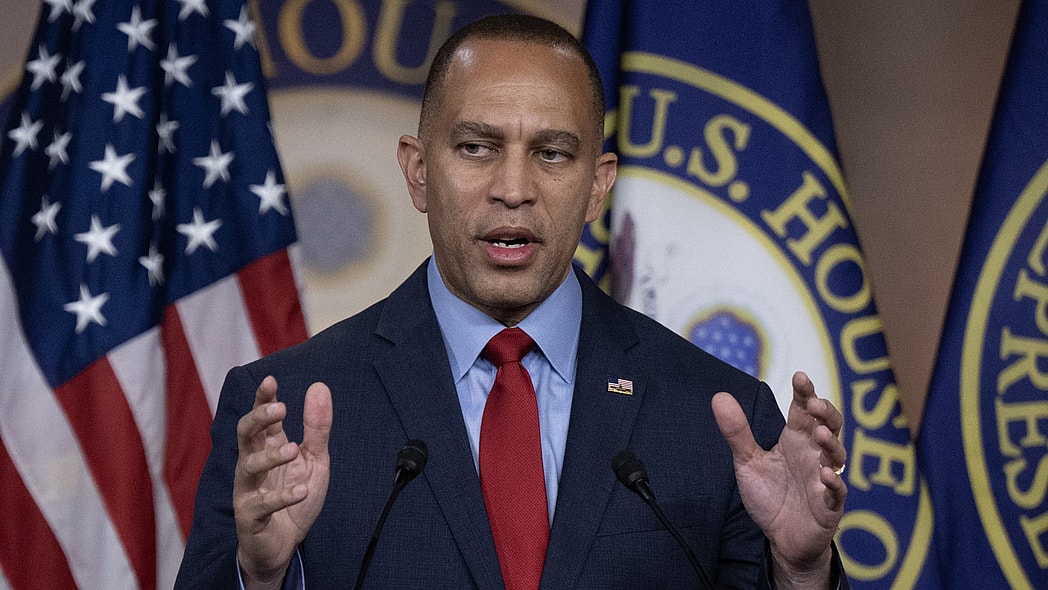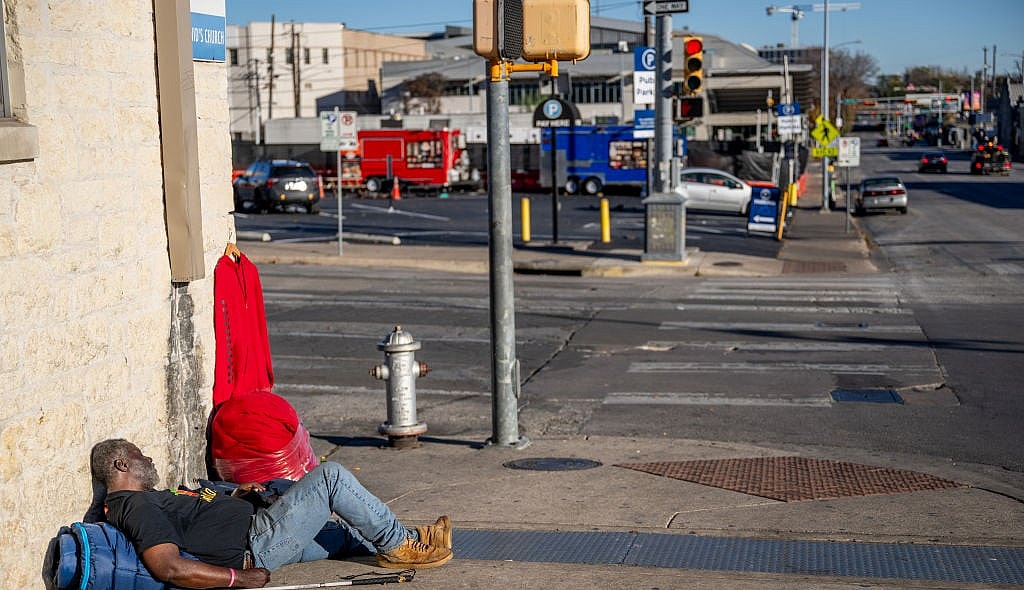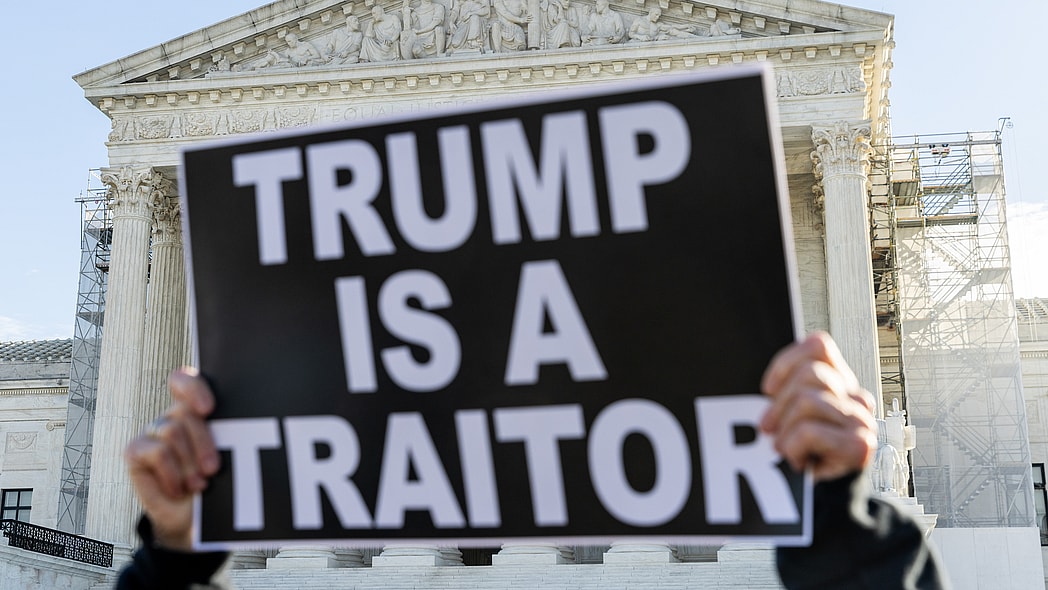U.S. Supreme Court Justice Ketanji Brown Jackson argued that it is “cruel and unusual” to punish unhoused individuals for sleeping in public spaces.
“We’re talking about sleeping … that is a basic function,” Justice Jackson said during Monday’s oral arguments in a case that could result in the criminalization of homelessness.
On Monday, the Supreme Court heard more than two hours of arguments in the case of Grants Pass v. Johnson. The justices listened to both sides of the case to determine whether cities across the nation are violating the Eighth Amendment and engaging in “cruel and unusual punishment” by placing restrictions on where unhoused individuals can rest.
While the liberal justices opposed criminalizing members of the unhoused community, the conservative majority considered an argument from attorneys representing Grants Pass, which is that the decision to punish homelessness should be left to local governments, not the justices.
U.S. Rep. Jasmine Crockett, D-Texas, told theGrio that the United States has a history of criminalizing “people for poverty, for mental health, for drug addiction, instead of making sure we’re locking up the bad guys.”
Crockett added, “We’re attacking our most vulnerable instead of coming up with policies that will afford people the dignity they deserve, which is to afford a roof over their heads.”
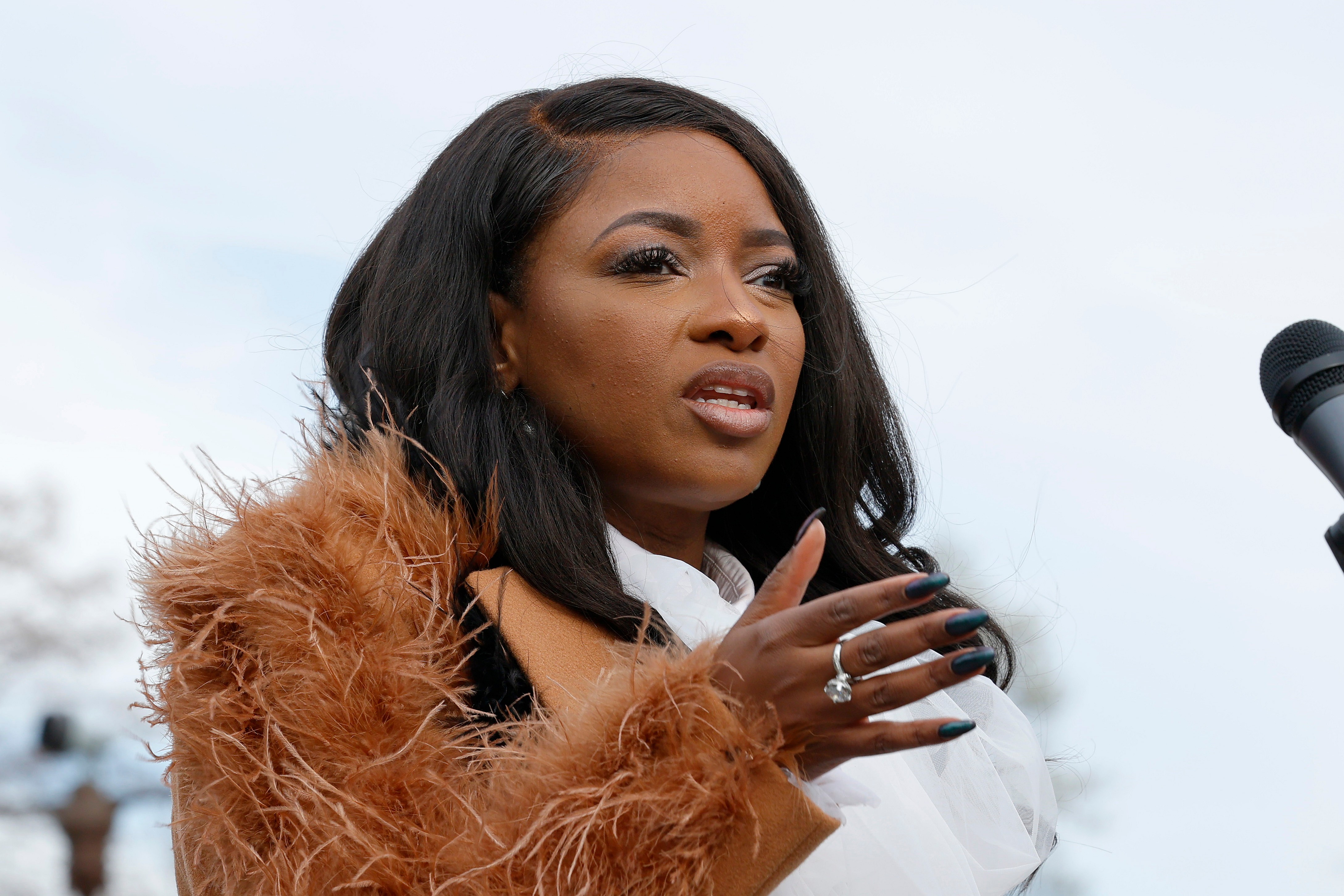
In 2023, three individuals experiencing homelessness filed a class action complaint against the city of Grants Pass, located in Oregon. The plaintiffs contended that the city enforced unconstitutional ordinances that regulate when and where they can sleep.
The city’s statutes bar unhoused individuals from using cardboard boxes, pillows, or blankets while sleeping on public streets, sidewalks, or alleyways at any time. The laws also prohibit those experiencing homelessness from sleeping in their cars in a parking lot for two or more hours between midnight and 6 a.m.
Jessie Rabinowitz, communications director for the National Homelessness Law Center, told theGrio that “there are no shelters in Grants Pass” and it would be unfair for the unhoused community to be punished for not having a place to stay.
Last year, a district court issued a permanent injunction to bar the city from enforcing the laws during certain periods of the day and at specific locations in the city.
Grants Pass then appealed the injunction, however, the U.S. Court of Appeals for the Ninth Circuit affirmed the lower court’s ruling. As a result, the city petitioned the U.S. Supreme Court, which granted certiorari.
A decision in the case is expected as early as June.
Crockett told theGrio that it is “absolutely criminal” that the Supreme Court has taken on this case, clarifying, “Unless they are taking it up to shut it down.”
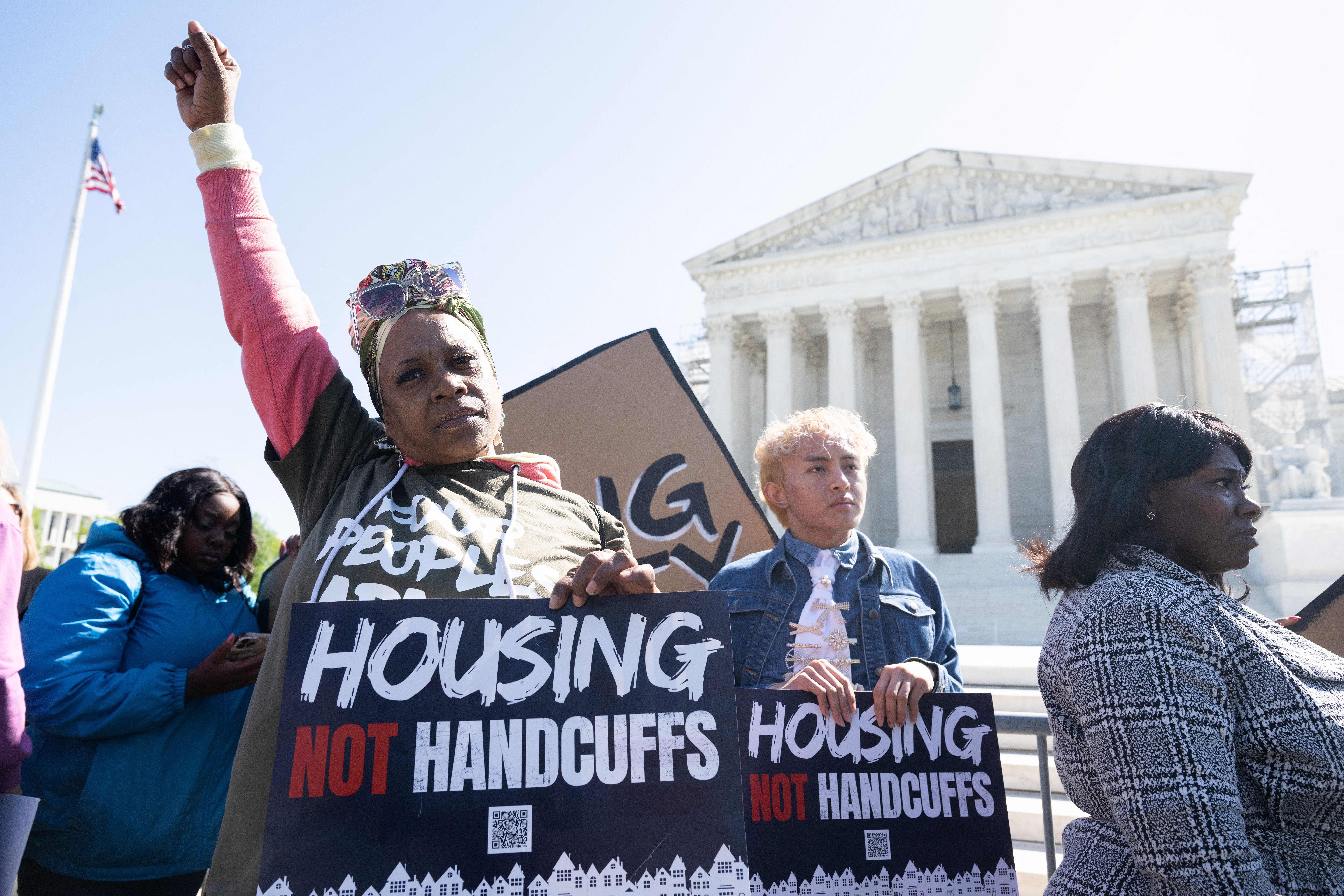
If the nation’s high court were to criminalize homelessness, data and experts say it would most negatively impact Black and other marginalized communities.
According to the National Alliance to End Homelessness, people of color are disproportionately impacted by homelessness and are the largest demographic seeking shelters annually. Although Black people make up only 13% of the American population, they account for more than 40% of the homeless community.
U.S. Rep. Suzanne Bonamici, D-Ore., told theGrio in a previous interview that the U.S. needs to create more affordable housing to help quell homelessness across the nation because shelters are not always the solution.
“Sometimes shelters aren’t available…and some aren’t safe,” said Bonamici.
The Oregon congresswoman said unhoused individuals need more resources and should not face the threat of criminalization.
Crockett said this case highlights the important stakes in the 2024 presidential election.
“Voting for yourself this election means that you are voting for a president,” she said, “who may have an opportunity to replace a U.S. Supreme Court justice, with someone who will value humanity and the dignity of people.”
Recommended Stories
Never miss a beat: Get our daily stories straight to your inbox with theGrio’s newsletter.


